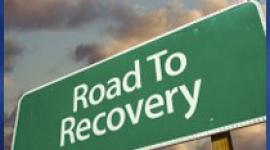Internet Addiction Online Conference Transcript
![]() Dr. Kimberly Young,has been touted as the world's leading "Cyberpsychologist". She has taken her expertise in computers and human behavior to become a pioneer in the study of Internet addiction, cybersexual addictions, and deviant online behavior.
Dr. Kimberly Young,has been touted as the world's leading "Cyberpsychologist". She has taken her expertise in computers and human behavior to become a pioneer in the study of Internet addiction, cybersexual addictions, and deviant online behavior.
David Roberts is the HealthyPlace.com moderator.
The people in blue are audience members.
David: Good evening everyone. I'm David Roberts. I'm the moderator for tonight's conference. I want to welcome everyone to HealthyPlace.com. Our topic is "Internet Addiction". Our guest is Kimberly Young, Ph.D. (What is Internet addiction (online addiction)?)
Dr. Young is a licensed psychologist and author of the book, "Caught In The Net," which addresses internet addiction recovery. You can view and purchase the book by clicking on the link.
Dr. Young started her career working in the information systems field and then entered the field of clinical psychology. She has taken her expertise in computers and human behavior to become a pioneer in the study of Internet addiction, cybersexual addictions, and deviant online behavior. She is internationally known for her work and is a frequent speaker on how technology impacts human behavior. If you're wondering if you have an internet addiction, you can take the online internet addiction test.
Good evening, Dr. Young and welcome to HealthyPlace.com. We appreciate you being our guest tonight. What is it about the internet that makes it so difficult for some to break away from it?
 Dr. Young: Well, it varies from person to person. The interactive features and availability online can be addictive. Then, stock trading and eBay auctions attract people and can be addictive too.
Dr. Young: Well, it varies from person to person. The interactive features and availability online can be addictive. Then, stock trading and eBay auctions attract people and can be addictive too.
David: Can you define internet addiction for us?
Dr. Young: Sure, it's the same criteria defined for substance abuse. You look for people that lie and become preoccupied with the internet and who jeopardize their career and other aspects of their life, despite the consequences.
David: Considering then, that it's similar to other types of addictions, like substance abuse, is the treatment of internet addiction similar?
Dr. Young: Yes, traditional recovery programs are generally used to treat Internet Addiction (IA).
David: So, are we talking about 12 step programs and that sort of thing?
Dr. Young: Yes, 12 step programs, rational recovery, cognitive behavioral techniques, etc.
David: Now, I can understand people becoming addicted to online gambling, even online stock trading and ebay auctions. What other types of things create an addictive environment over the computer?
Dr. Young: Generally such things as, chats, games and pornography.
David: Here's an audience question/comment, Dr. Young:
GreenYellow4Ever: Isn't it a little ironic to have support groups for internet addictions ONLINE?
Dr. Young: Yes, I've heard of groups like that and for some, it is a comfort to know that you are not alone. In many instances, the support is used to empower people. They seem to be useful from what others have told me.
David: On your site, you use the term cyber widows, significant others or spouses of internet addicts. How are they impacted?
Dr. Young: Well, with spouses, it is very difficult if their significant other is having an affair on the net and can often lead to separation and divorce.
David: Are their key personality traits in an individual that can lead to internet addiction and that can be used to identify them as a potential internet addict?
Dr. Young: Yes, studies show that key personality traits that make a person more vulnerable to develop addiction are:
- shyness
- introversion
- dominance
- open-mindedness
- intellectual ability
David: So, how can one tell if they are spending too much time online?
Dr. Young: You have to look at the characteristics and symptoms. There is no time cut-off. That is like trying to define alcoholism by counting the number of drinks the person consumes. The characteristics and symptoms I previously mentioned can also reveal if you are spending too much time online.
Keatherwood: I just took the "internet addiction test" on your site and got an 87. I spend lots of time in chatrooms, both as a moderator and a member. As someone that deals with trust issues from abuse, is it necessarily bad to make most your friends online? My husband does complain, but I really think I give him enough attention :).
Dr. Young: That's a difficult question to answer. Obviously, it is easier to make friends online, but it is difficult to make a diagnosis. Is it bad though for a person to make most of their friends online? I don't think it should be judged in terms of bad or good. Online friendship offers a unique opportunity. I know of some people that have met and married online and I don't think it's a bad thing.
|
|
vetmed00: Both of my relationships have been online relationships and they are the healthiest relationships that I have been in.
David: But what if most of your relationships are solely virtual vs. face-to-face? Would you consider that healthy?
Dr. Young: Again, it's not for me to judge the quality that online relationships can offer to an individual. I suppose though it can be unhealthy if there is no contact with other human beings.
GreenYellow4Ever: Is the allure of online pornography because of anonymity, availability, or just the addictive behavior a person has and this is, frankly, the cheapest way to feed the addiction?
Dr. Young: Yes, typically it's the anonymity and the availability of online pornography that makes it enticing.
David: Given that many families today have family members who have faced addiction, and there is very easy availability of all these addictive features, i.e. gambling, stock trading, pornography, how do other family members help the internet addict control their behavior?
Dr. Young: Understanding what the internet has to offer can help families control the addictive features that the internet offers. My programs for parents focus on these issues.
David: Can you elaborate on that please?
Dr. Young: Reading my book, Caught in the Net, can help educate parents on the pitfalls of the internet but also reading other material about the internet. The main point is awareness, especially the careful monitoring of computer use in the home. Let me add, that my programs for parents focus on awareness, which I believe is important for controlling their behavior.
David: Can you give us a few examples of how someone would control the addictive features of the internet?
Dr. Young: If you are looking at an individual, try and set goals. This is because people lose track of time. Presetting an alarm to help you monitor a person's use of the internet might be a possible solution.
David: In a home where there is an alcoholic, family members won't stock the liquor cabinet. What do you do in a home where there is a computer? Would you lock it up? Throw it out?
Dr. Young: No, I base everything on moderation and controlled use. The metaphor I use is food addiction. You must make healthy balanced choices.
Phyllis: How about setting up a schedule for family members?
Dr. Young: Yes, that's an excellent idea, Phyllis.
David: What advice would you give to an internet addict who has a job which requires them to be online a good part of the day, but they can't stay away from something like eBay, stock trading, etc.?
Dr. Young: Typically that's the case and many times they can install filtering software. Some companies might have policies that can have a person fired for continued internet use and that can be a deterrent.
David: Isn't that sort of like having an alcoholic and locking up the liquor cabinet and handing him the keys and saying "now don't have anything to drink." I mean, if you have to set up your own filtering software, I'm assuming that if the allure is strong enough, you'll change the filter? Would you suggest that person find a different line of work?
Dr. Young: Honestly, that has happened before where a person has to go through detox. They would have to change professions.
GreenYellow4Ever: My husband is ADD and can literally sit for hours until the wee hours of the morning just dinking on the computer. He says he is not addicted, just forgets about time. Would you say this is a valid reason for him being on so long?
Dr. Young: Yes, often that is the case. People lose track of time. Unlike TV, there are no commercial breaks. Interestingly, children with ADD can sit on the computer for hours and hours as well.
David: I'm wondering if you think the internet itself is addictive, or whether people who are addicts, or who have an addictive nature, are being drawn to the internet because of the easy availability of the things they crave?
Dr. Young: The reason could be both. My studies show that people who have a prior history of compulsivity, certainly multiple addictions, are quite common. However, there are some people that have had no prior addictions, which is a new clinical development.
David: And I'm assuming that's one of the reasons why it's so important for parents to monitor their children's internet use?
Dr. Young: Yes, that is one of the reasons.
David: Since internet addiction is fairly new, are there many therapists out there who know how to treat it?
Dr. Young: The actual field of therapists dealing with IA has grown since I started in this field in 1994 and there is an emerging number of therapists who are interested in this field. I, myself, provide workshops for therapists who are interested.
Phyllis: What would be your suggestion then to overcome internet addition?
Dr. Young: Getting involved in treatment programs that focus on time management, and also understanding the underlying issues of his or her internet addiction. A formal evaluation is necessary to develop the best treatment plans.
David: Can a person end their internet addiction on their own or do you feel they would need professional treatment for internet addiction?
Dr. Young: Sometimes self-control is possible, just like smoking addiction.
David: In the hierarchy of addictions, would you consider internet addiction a less or more serious addiction than others?
Dr. Young: Well certainly it does not pose the same health risks as alcoholism and drug addictions. However, it still creates the same level of emotional and family problems. In that way, it's at the same level of alcohol and drug addictions.
vetmed00: Is one to believe they have an addiction to the net if they would rather talk to people here, than to the "real life" people around them?
Dr. Young: No, that's not the definition of addiction. You need to look at the basic criteria. Is it compulsive, etc.? Those factors have a role in defining the addiction.
GreenYellow4Ever: What is your program for parents?
Dr. Young: I developed a program based on speaking with parent groups, that I will be launching in a few months. The focus is on child safety and understanding the digital generation a bit better.
David: Thank you, Dr. Young, for being our guest tonight and for sharing this information with us. And to those in the audience, thank you for coming and participating. I hope you found it helpful. For more information, you can visit Dr. Young's website here.
We have a growing addictions community here at HealthyPlace.com.
Dr. Young: Thank you and goodnight.
David: Good night, everyone.
Disclaimer: We are not recommending or endorsing any of the suggestions of our guest. In fact, we strongly encourage you to talk over any therapies, remedies or suggestions with your doctor BEFORE you implement them or make any changes in your treatment.
|
|
back to: Addictions Conference Transcripts
~ Other Conferences Index
~ all addictions articles
APA Reference
Gluck, S.
(2007, August 1). Internet Addiction Online Conference Transcript, HealthyPlace. Retrieved
on 2026, March 1 from https://www.healthyplace.com/addictions/transcripts/internet-addiction-online-conference-transcript



